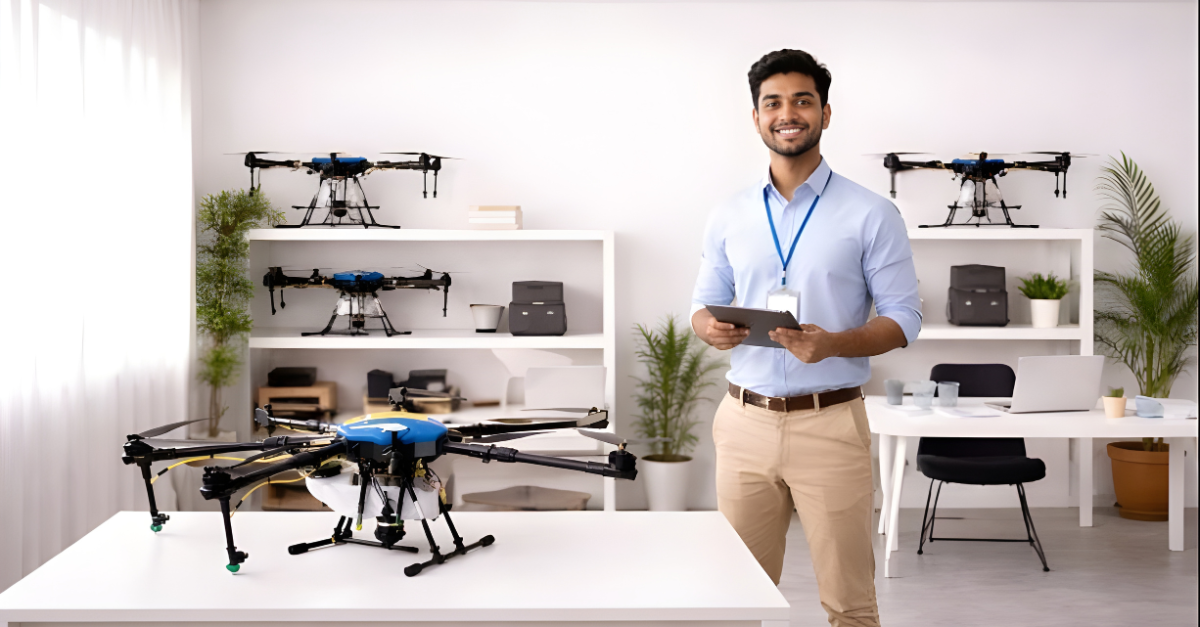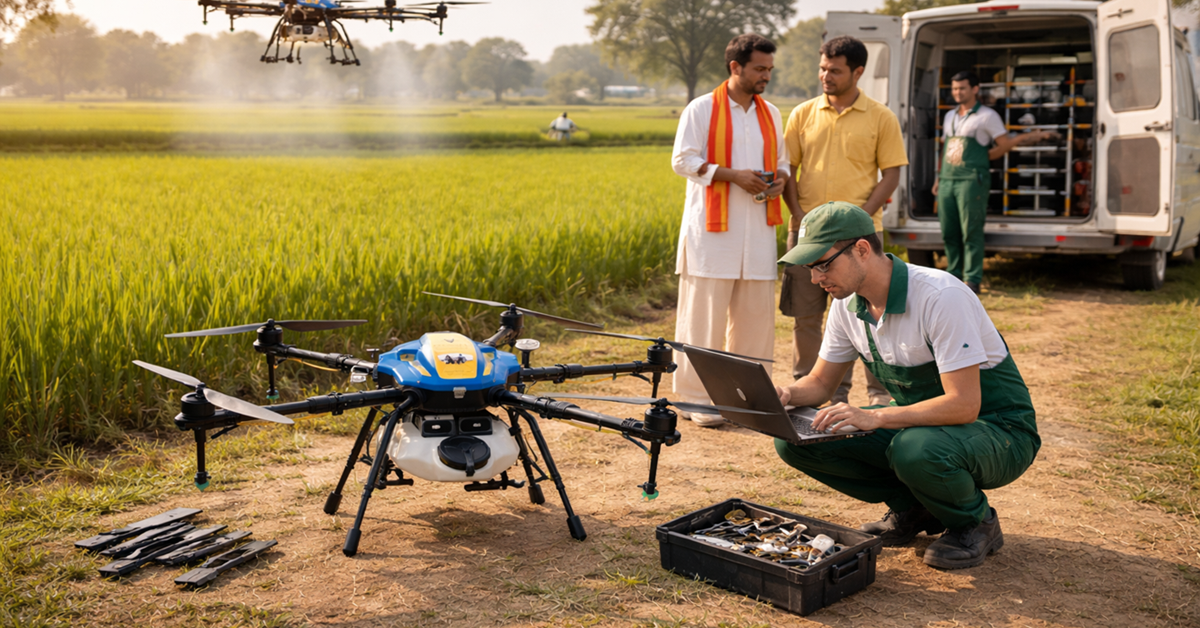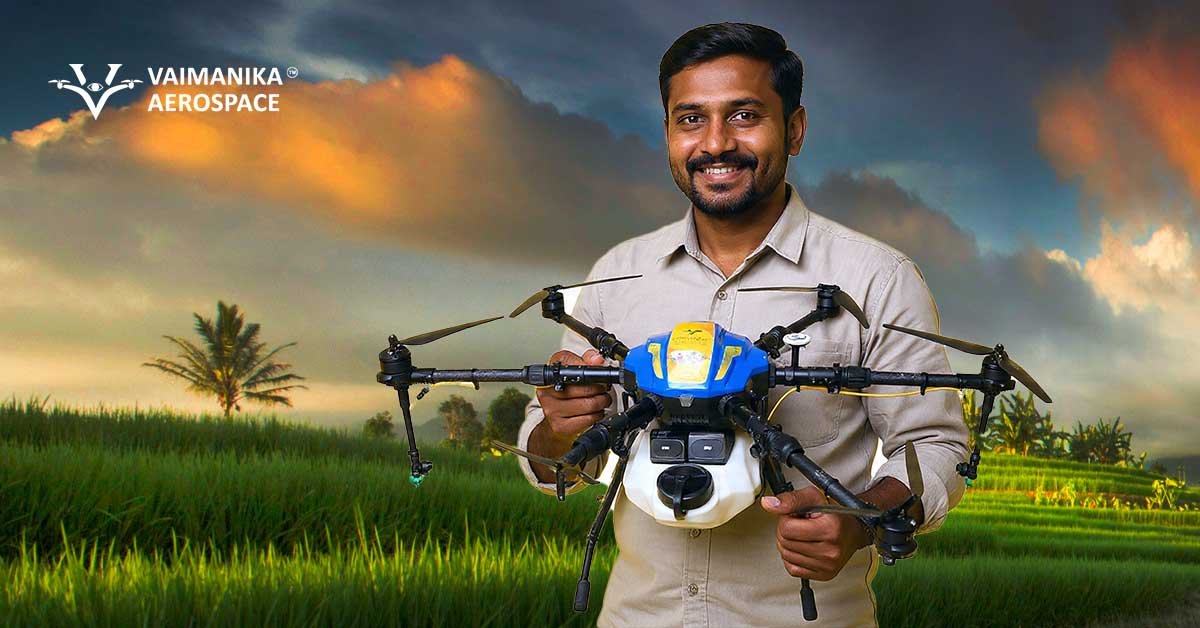Introduction
The agricultural sector is facing significant challenges today—rising demand for food, shrinking arable land, climate change, and labor shortages. Traditional farming methods are no longer sufficient to meet these growing demands. However, technology offers a promising solution, with drones playing a key role in transforming modern agriculture. In recent years, collaborations between startups and government bodies have proven to be a powerful catalyst for accelerating the adoption of drone technology in agriculture. These partnerships are paving the way for smarter, more sustainable farming practices that can revolutionize the way we produce food.
Why Drones in Agriculture?
Drones in agriculture are transforming how farmers monitor and manage their crops. Equipped with advanced sensors, drones can capture real-time data about crop health, soil conditions, and weather patterns, providing farmers with insights that were previously hard to come by. The technology allows for more precise pesticide application, efficient irrigation, and accurate crop monitoring, all of which lead to increased yields and reduced costs.
Despite their potential, drones are still not widely adopted by small and medium-scale farmers, particularly in developing countries, due to factors like cost, lack of awareness, and regulatory challenges. This is where collaboration between startups and government entities becomes crucial.
The Role of Startups in Drone Technology
Startups are often at the forefront of innovation, and this is especially true in the field of drone technology. These agile companies are developing cutting-edge solutions that make drones more accessible, affordable, and easy to use for farmers. Startups like Vaimanika Aerospace are leading the way by creating drones tailored for agricultural applications, offering services like crop monitoring, spraying, and data analytics. These innovations enable farmers to implement precision agriculture techniques that save time, resources, and money.
Moreover, startups are instrumental in providing training and support to farmers. They help bridge the knowledge gap by offering user-friendly platforms that integrate drone data with farm management systems. These efforts are not only increasing the adoption rate of drones but are also building the trust and confidence of farmers in new technologies.
Government Support and Policies
While startups drive technological innovation, government support is equally essential for the widespread adoption of drone technology in agriculture. Governments across the globe are recognizing the value of drones in enhancing food security, sustainability, and agricultural productivity. To facilitate this, many are implementing favorable policies, subsidies, and grants to help farmers adopt these advanced technologies.
For instance, India has recently launched the Drone Didi initiative in Goa, aimed at promoting drone usage among women farmers. Similarly, the Indian government has rolled out a Drone Policy to streamline the regulatory framework, ensuring the safe use of drones in agriculture. These initiatives lower the barriers to entry for farmers and create an ecosystem where startups and government can collaborate seamlessly.
Successful Collaborations: A Case Study
One of the most notable examples of collaboration is the partnership between the Indian government and startups like Vaimanika Aerospace. Vaimanika Aerospace, a leader in agricultural drones, has worked closely with government agencies to offer drones for precision farming. Through this collaboration, the company has been able to offer affordable drone services and training programs for farmers in rural India.
The success of such partnerships lies in their ability to address real-world challenges. By providing subsidies for drone purchase, the government has made it easier for small farmers to integrate drones into their daily operations. Moreover, government-backed initiatives help startups scale their operations by offering access to large markets and creating awareness about drone technology among farmers.
Challenges to Overcome
While the collaboration between startups and government is a step in the right direction, there are still several challenges to overcome. Regulatory hurdles remain one of the biggest barriers to the widespread adoption of drones in agriculture. Complex licensing procedures, airspace restrictions, and data privacy concerns need to be addressed to foster a more conducive environment for drone adoption.
Furthermore, both startups and governments need to work together to ensure that drone technology is accessible to farmers across all regions, including underserved and remote areas. This requires an integrated approach that combines technology, policy support, and infrastructure development.
Conclusion
The collaboration between startups and government bodies is proving to be a game-changer for drone adoption in agriculture. By working together, these two sectors can help overcome the challenges farmers face and ensure that they have the tools and resources needed to thrive in the modern age of agriculture. With continued innovation, support, and collaboration, drones will undoubtedly play a key role in transforming agriculture, making it more efficient, sustainable, and productive.




